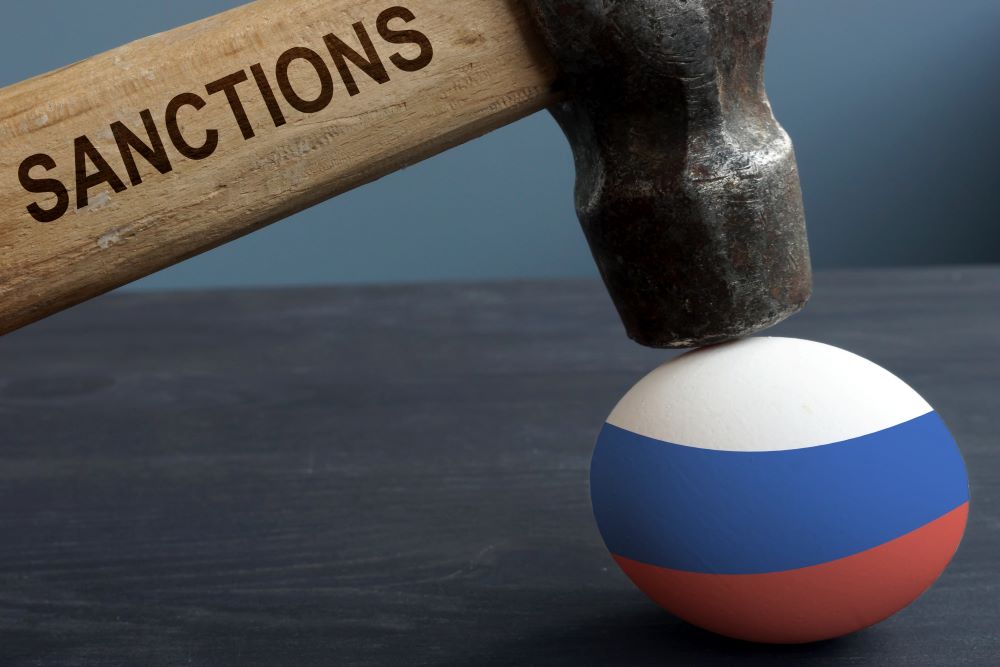
The UK government has today (11 December) announced the establishment of a new body dedicated to enforcing sanctions, the Office of Trade Sanctions Implementation (OTSI).
The new office, as outlined by industry and economic security minister Nusrat Ghani, will focus on firms evading sanctions relating to Russia. It will target “companies who may be avoiding sanctions by sending products through other countries”, the government states.
New powers
OTSI is set to be launched early next year “once the new legal requirements are in place”, the government has said. The office’s powers will include issuing penalties for sanctions breaches, referrals to HMRC and providing support to traders on how to ensure compliance with sanctions regulations.
Products used by Russia’s army in Ukraine are set to be targeted by a new package of UK sanctions, among them chemicals and machine components, as well as other products being sold to fund Russia’s campaign in the country.
Import of goods from Russia into the UK is down by 94% in the year since the invasion of Ukraine.
‘A clear message’
Ghani said:
“We are leaving no stone unturned in our commitment to stopping Putin’s war machine. That means clamping down on sanctions evaders and starving Russia of the technologies and revenues it needs to continue its illegal invasion.
“Today’s announcement will help us do that, and send a clear message to those breaking the rules that there is nowhere to hide.”
The minister for sanctions, Anne-Marie Travelyan, added that OTSI will “allow us to maximise the impact that trade sanctions have on those who continue to flout the global rules”.
Fine details
Today’s news follows a notice from the government published last week detailing fines levied at three companies for breaches of export control laws. HMRC said that breaching sanctions, including those making up its “unprecedented” sanctions package on Russia, is a “serious offence”.
One firm faced a fine of over £67,000 in August in response to its attempts to export in breach of Russian sanctions.
Institute of Export and International Trade (IOE&IT) trade and customs specialist Sam Hodgkins said last week that the UK’s post-Brexit requirement for a licence to ship dual-use goods across the British border is “still causing confusion for some firms”, which may be contributing to some difficulty with regulation compliance.
She added that training is a vital element of successful compliance and that this is something IOE&IT can help with.



